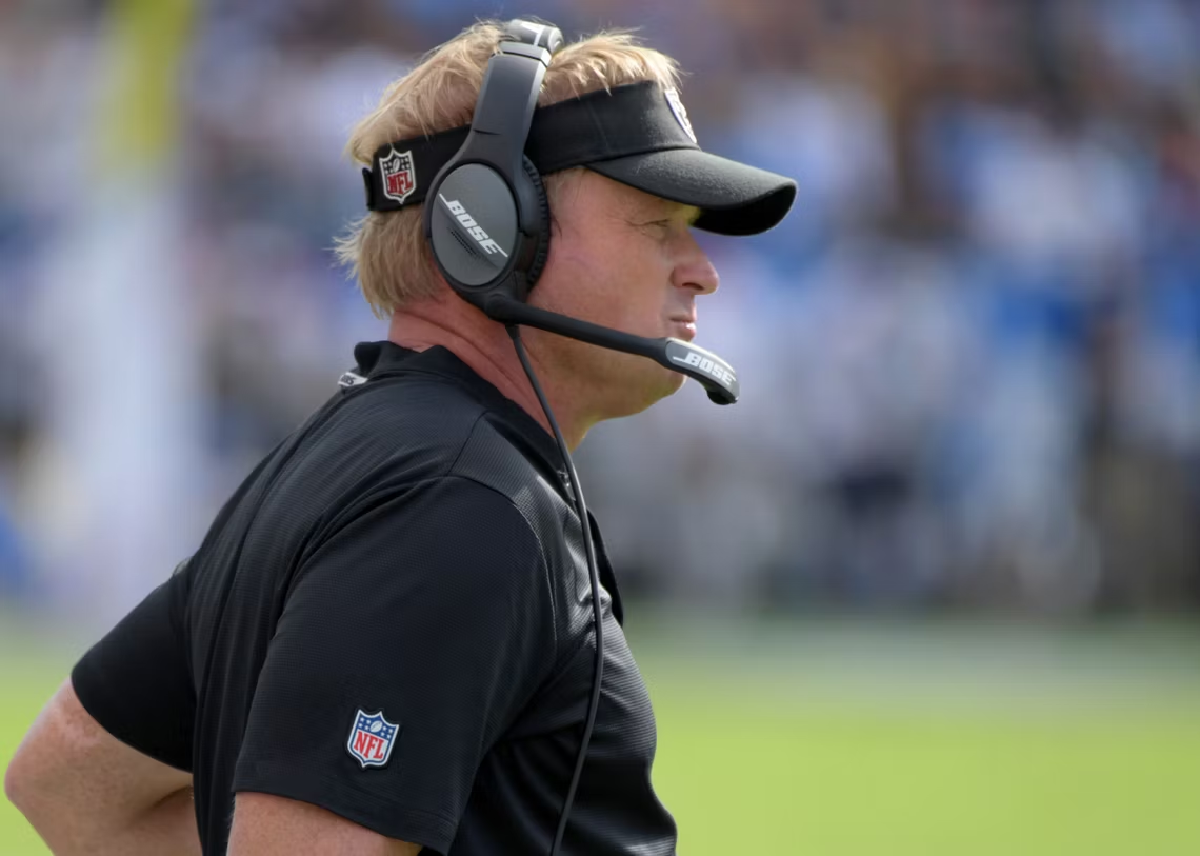The Nevada Supreme Court has spoken. Again.
On Monday, the court rejected former Raiders coach Jon Gruden’s request for reconsideration of the ruling that ordered his claims against the NFL and Commissioner Roger Goodell to arbitration. Gruden’s only remaining move is to ask the U.S. Supreme Court to take up the case.
Good luck with that. Even if they take it (and they likely won’t), count on a 6-3 ruling that Gruden is required to submit the case to arbitration presided over by one of the people he has sued.
The case arises from Gruden’s forced resignation in October 2021, days after someone began leaking emails he sent to former Washington executive Bruce Allen. The emails created a groundswell for Gruden’s ouster. Gruden’s case focused on the selective weaponization of supposedly confidential emails from the investigation into the Washington franchise by someone in the fairly small universe of people who had access to the materials.
If Gruden takes the case to the Supreme Court, the effort to reach the merits of the dispute will continue to be delayed. At some point, he’ll have to take his chances before the secret, rigged, kangaroo court that the league has developed both to control the adjudication of all claims made against it by non-player employees — and more importantly to keep it all secret.
Secrecy is critical to the league. For example, even if it manages to reverse last week’s massive verdict in the Sunday Ticket class action, things came to light that the NFL would have preferred to keep in the dark.
Despite the fact that the coverage of the case by many outlets was lacking, to say the least, the truth remains that the mere act of having the dispute unfold in open court allowed anyone who bothered to notice to learn that, yes, the NFL deliberately rigged for years the pricing of Sunday Ticket, overcharging those who were willing to pay the price and depriving those who weren’t of the option to watch games other than those provided by their local CBS or Fox affiliates.
Although the league has benefited from the media’s malaise when it comes to connecting the dots for consumers, few if any of the details would have been publicly known if the league had the silver bullet of mandatory arbitration at its disposal.
In Gruden’s case, someone connected to the league office or one of its teams decided to take out Jon Gruden by handing those emails to the Wall Street Journal and the New York Times. Unless Gruden manages to convince a Supreme Court that is already stacked against him to undo the Nevada ruling, the public will never know the answer to that question.
Some would say we don’t have the right to know the inner workings of a private business. Others would say that, as long as that private business relies on the public at large to consume its product and to pay for its stadiums, we absolutely have a right to know.
Our right to know is enhanced by the fact that it happened during football season, necessarily undermining the integrity of the 2021 campaign by suddenly leaving one of the NFL’s 32 teams without its head coach.

